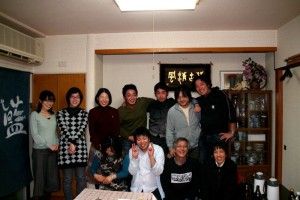Summary
The principal research focus in our department involves programs devoted to the molecular, nutritional, and genetic bases for leukemia/cancer and other common life-style related diseases. Four faculty members with many foreign postgraduate students pursue research linked to human diseases, including adult-T cell leukemia (ATL) with HTLV-1 infection, the patients of which are mainly accumulated in the southern part of Kyushu island including Miyazaki.
Research Projects
A broad spectrum of technical approaches utilizing the tools of enzymology, molecular biology, and genetics is being used to understand the origins of diseases which are common in our population. Among the studies underway are analyses of the inheritance and genetic analysis of cancer, mechanisms of resistance to anti cancer drugs by stress response (Nature comm 2014), which is related to leukemia stem cells with EVI1 (Cell 1988) or MEL1/PRDM16 transaction factors (Blood 2000), and altered metabolic function by AMPK linked to altered glucose metabolism (Cell stem cell 2015). Faculty members in this research area collaborate in a wide variety of studies with investigators in basic sciences and clinical faculties at both nationally and internationally. These investigations include basic research into the metabolism of drugs and environmental toxins, apoptosis, analyses of metabolism and gene regulation in normal and cancer cells, and direct diagnosis of cancer, diabetes, and other disorders in humans by molecular genetic and immunological techniques.
Laboratory Techniques
- Maintenance and handling of mammalian cells
- Basic molecular biology techs (e.g., PCR, Sanger sequencing, transformation, stem cell culture, iPS)
- NGS (next generation DNA sequencers) sequencing and bioinformatics
- Antibody production by phage display and development of molecular target therapy
- Generation of genetically modified mouse (Cre/lox, CRISPR/Cas)
- Mass spectrometry analysis
International Collaboration
- Department of Internal Medicine, Prince of Songkla University, Thailand
- Faculty of Veterinarian Science, Chulalongkorn University, Thailand
- Faculty of Medicine, Gadjah Mada University, Indonesia
Publications
- Saito Y, Chapple R, Lin A, Kitano A, Nakada D.AMPK protects leukemia-initiating cells of MLL-rearranged acute myeloid leukemia from metabolic stress in the bone marrow. Cell Stem Cell. 2015
- Ichikawa T, Nakahata S, Fujii M, Iha H, Morishita K. Loss of NDRG2 enhanced activation of the NF-κB pathway by PTEN and NIK phosphorylation for ATL and other cancer development. Scientific Reports 5:12841 (2015)
- Ichikawa T, Nakahata S, Tamura T, Manachai N, Morishita K. The loss of NDRG2 expression improves depressive behavior through increased phosphorylation of GSK3β. Cell Signal. 27:2087-98. 2015
- Nakahata S, Ichikawa T, Maneesaay P, Saito Y, Nagai K, Tamura T, Manachai N, Yamakawa N, Hamasaki M, Kitabayashi I, Arai Y, Kanai Y, Taki T, Abe T, Kiyonari H, Shimoda K, Ohshima K, Horii A, Shima H, Taniwaki M, Yamaguchi R, Morishita K. Loss of NDRG2 expression activates PI3K-AKT signalling via PTEN phosphorylation in ATLL and other cancers. Nature Comm. 5: 3393 (2014)
- Saito Y, Kaneda K, Suekane A, Ichihara E, Nakahata S, Yamakawa N, Nagai K, Mizuno N, Kogawa K, Miura I, Itoh H, Morishita K : Maintenance of the hematopoietic stem cell pool in bone marrow niches by EVI1-regulated GPR56. Leukemia 27: 1637-1649 (2013)

